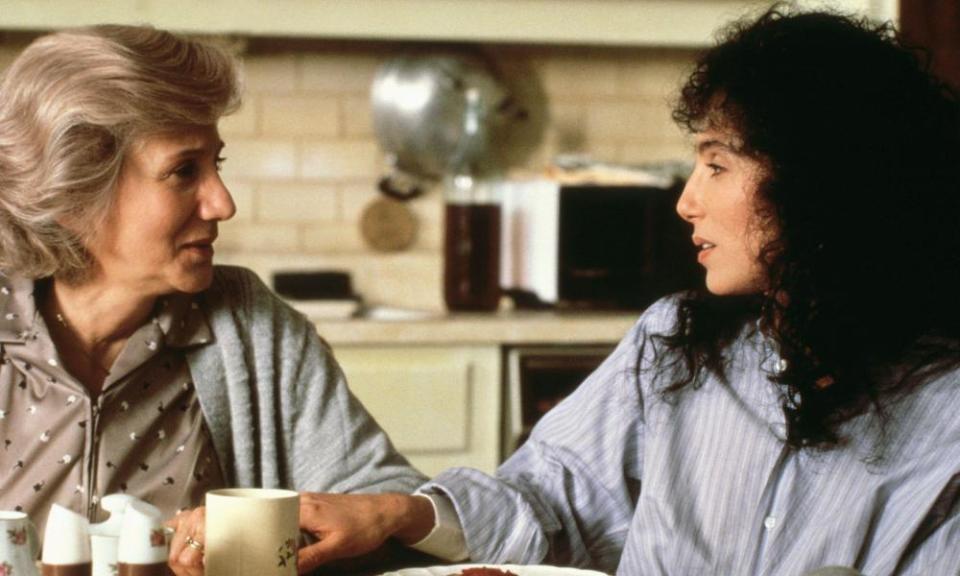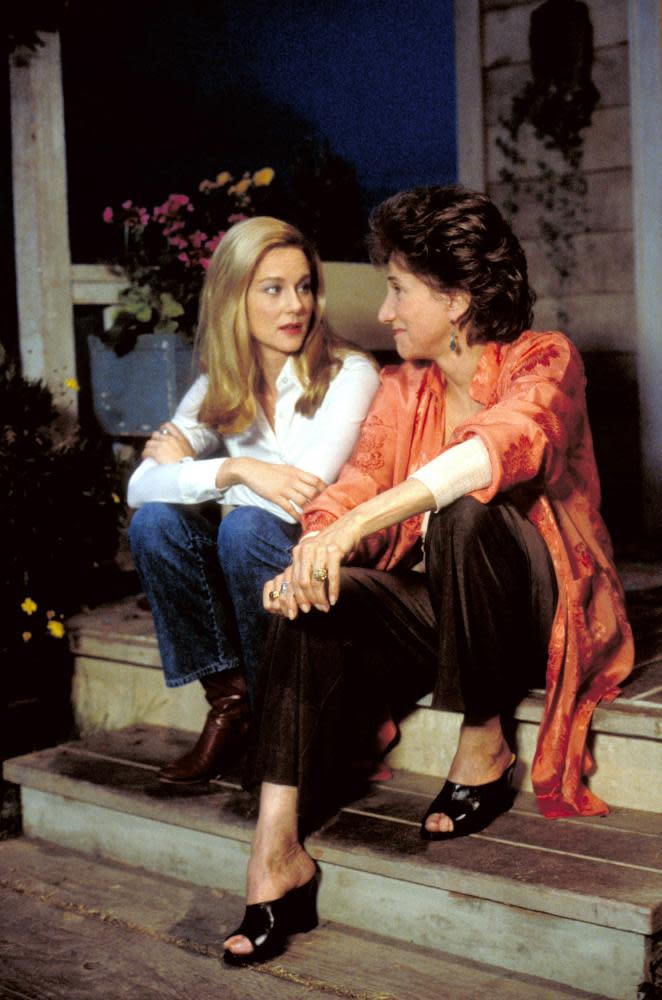Olympia Dukakis obituary
After more than two decades of distinguished work in the US theatre as an actor, director and teacher, and appearances in a dozen or so films, Olympia Dukakis, who has died aged 89, became hugely famous overnight by winning the best supporting actress Oscar in 1988 for her performance as Cher’s mother in the romantic film Moonstruck (1987).
The course of her career suggests that her ambitions never lay in the direction of Hollywood. Her theatrical credits read like the canon of classic and modern plays: she had roles in plays by Euripides, Sophocles, Shakespeare, Chekhov, Ibsen, Lorca, Pirandello, Brecht, Eugene O’Neill and Tennessee Williams, on and off Broadway, as well as in various regional theatres across the country. In films, she took on several character roles, making an impression in scores of pictures for more than half a century.

Dukakis made her film debut as a patient in a mental hospital in Robert Rossen’s Lilith (1964). The first of her many mother parts came in Peter Yates’s John and Mary (1969) seen briefly in flashback as Dustin Hoffman’s mother.
In Made for Each Other (1971), a romantic comedy in which an Italian-American man (Joseph Bologna) and a Jewish woman (Renee Taylor) fall in love, Dukakis is the former’s mama opposed to her son’s relationship. In one scene, she remains hostile until, alone in the hallway, she shrieks: “Get that woman out of my house.”
In Norman Jewison’s Moonstruck, a modern fairytale of love, with each leading character destined to have his or her moment of glory, Dukakis is by turns warm, humorous and cynical, and poignantly wonders why men (especially her husband) are unfaithful. “Feed one more bite of my food to your dogs, old man, and I’ll kick you to death,” she tells her father-in-law at the dinner table. Winning the Oscar led inevitably to more recognition, though not necessarily bigger parts.

Among the best were the tight-lipped personnel officer in Working Girl (1988); the archetypal comic “Jewish mother” of Kirstie Alley in Look Who’s Talking (1989) and its two sequels; and the acid-tongued Clairee Belcher, trading a salvo of one-liners with Shirley MacLaine in Steel Mangolias (1989): “Well, you know what they say: if you don’t have anything nice to say about anybody, come sit by me.”
In Dad (1989), as a woman laid up with a heart attack watching her husband (Jack Lemmon) enjoying a certain freedom, she is wickedly funny, putting a tincture of venom into almost every line.
Dukakis continued to be much in demand in the movies, with roles such as Jocasta in Woody Allen’s Mighty Aphrodite (1995), and the stern but lovable school principal in Mr Holland’s Opus (1995). But arguably her best role was in the TV mini-series Armistead Maupin’s Tales of the City (1993), as Anna Madrigal, the free-spirited, transgender, pot-smoking landlady in 1970s San Francisco. She reappeared in the sequels, More Tales of the City (1998), Further Tales of the City (2001) and again under the title of Tales of the City (2019).
Because of this part and several other gay-friendly ones, Dukakis became a hero of the LGBTQ+ movement. This was underlined by Cloudburst (2011), a road movie in which Dukakis, as a self-styled “old butch dyke”, and her companion of 31 years (Brenda Fricker), take off from the US to Canada to get married.
Born in Lowell, Massachusetts, Olympia was the daughter of Constantine Dukakis and Alexandra (nee Christos), both Greek immigrants. She gained a BA in physical therapy at Boston University, later returning to study performing arts for a master of fine arts degree. She was a founder member of the Charles Playhouse, Boston, where she worked from 1957 to 1960, and taught acting at New York University and at Yale.

In 1962 she married the actor Louis Zorich, and they were the artistic inspiration behind the Whole Theatre in Monclair, New Jersey (1973-1990), adapting plays for the company and directing dinner theatre there and at summer festivals elsewhere in the US.
In 2000, Dukakis appeared in London at the National Theatre in Rose, a monologue written for her by Martin Sherman. Playing a Holocaust survivor, sitting on a bench, she held an audience for nearly two hours.
Another striking stage performance came in an off-Broadway production of Tennessee Williams’s 1963 drama The Milk Train Doesn’t Stop Here Anymore (2011), as the wealthy, dying gorgon Flora Goforth. “Macabre, hilarious and weirdly touching more or less sums up Ms Dukakis’s performance, although a host of other adjectives might also be applied to her multihued portrait of a woman who has married and buried four husbands but cannot face the truth when the reaper comes to escort her from life’s banquet,” reported a New York Times critic.
In 2003, Dukakis published her autobiography, Ask Me Again Tomorrow: A Life in Progress, in which she wrote of her support of feminism and environmental causes, and her support for the Democratic party, with candour and humour. At the same time as she had picked up the Oscar for Moonstruck, her first cousin Michael Dukakis began his unsuccessful quest for the presidency against George HW Bush. Olympia herself was a delegate from New Jersey at the 1988 Democratic national convention.
Louis died in 2018, and she is survived by their three children, Christina, Stefan and Peter, four grandchildren and her brother, Apollo.
• Olympia Dukakis, actor and director, born 20 June 1931; died 1 May 2021
• Ronald Bergan died in 2020

 Yahoo Movies
Yahoo Movies 
